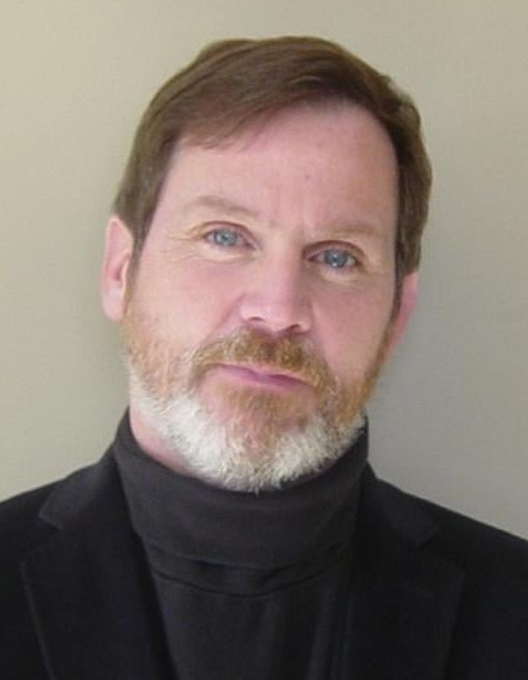The Maine Psychological Association (MePA) is a non-profit association which represents the 600+ psychologists and psychological examiners in Maine. Our mission is to advance psychology as a science, as a profession, and as a means of promoting human welfare. Our membership consists of practicing psychologists, academicians, students, retirees, associates and affiliates. For consumers, the Maine Psychological Association, at no charge, offers assistance with locating psychologists around the state for referral. Our on-line database, available to all, can be used to search for a psychologist.
For psychologists and psychological examiners, MePA offers advocacy on behalf of psychologists in the legislature and with state agencies, continuing education workshops, at home continuing education, and a newsletter, The Maine Psychologist. We also provide no-cost ethics consultations for members with the MePA Ethics Committee, and act as a clearinghouse on laws, regulations, managed care, and other topics affecting the practice of psychology. Members also have exclusive access to the Members Portal (link to “Members Portal”), where current issues are discussed and pertinent information is shared.
If you are a psychologist or psychological examiner, living or working in Maine, please consider joining your state association.
Mission Statements and Values
Mission Statement
The Maine Psychological Association (MePA) is a non-profit association which represents the 600+ psychologists and psychological examiners in Maine. Our mission is to advance psychology as a science, as a profession, and as a means of promoting human welfare. Our membership consists of practicing psychologists, academicians, students, retirees, associates and affiliates.
Equity, Diversity, and Inclusion Statement
The Maine Psychological Association (MePA) is committed to promoting human rights and wellbeing for all Mainers by applying the principles of equity, diversity, and inclusion (EDI) to all we do.
We strive to be equitable and welcoming to all members and invite a diversity of psychologists throughout the land known as Maine – the ancestral and current home of the Wabanaki, or “People of the Dawnland.”
We engage in training, advocacy, community building, and collaboration with partners to advance the accessible, equitable, and inclusive practice of psychological science to promote wellbeing.
We recognize that psychology is a product of Western culture and reflects ethnocentric biases and presumptions. We acknowledge the contributions of psychology to social hierarchies and inequities within the profession and our broader society.
Therefore, MePA commits to applying and sharing empirical research on cultural diversity and actively challenging inequities across all aspects of our organization and practice.
Position Statement Affirming Support of LGBTQ+ Youth
The Maine Psychological Association (MePA) serves a vital role throughout the state to advance psychology as a science and as a profession. In addition, MePA has a longstanding tradition of commitment to the promotion of human rights and wellbeing for all Mainers. MePA engages in training, advocacy, community building, and collaboration with partners and strives to advance the accessible, equitable, and inclusive practice of psychological science to promote the wellbeing of all Mainers.
It is well known that psychological problems have become pervasive among America’s young people. The events of the past several years, including the COVID pandemic and numerous socio-political stressors, are deeply affecting the social-emotional wellbeing of young people (Prinstrein, 2022). Moreover, suicide rates among young people are now the second leading cause of death, behind unintentional injuries (Prinstrein, 2022; Stone, Jones & Mack, 2021).
It is also well documented that LGBTQ+ young people are among the most vulnerable when it comes to psychological stressors. According to The Trevor Project’s 2023 U.S. National Survey on the Mental Health of LGBTQ Young People, 41% of LGBTQ+ young people seriously considered attempting suicide in the past year. Those who identify as transgender, nonbinary, and/or are people of color reported higher rates than their peers. Additionally, a majority of LGBTQ+ young people reported being verbally harassed at school because of their queer identity and nearly 2 in 3 LGBTQ+ young people said that hearing about potential state/local laws banning people from discussing queer identity at school made their mental health worse (The Trevor Project, 2023). Only 38% of these respondents, many of whom identified symptoms of depression (67%) and anxiety (54%), found their home to be LGBTQ+-affirming (The Trevor Project, 2023).
While the outlook for LGBTQ+ youth may seem bleak, studies have consistently shown that access to safe spaces and affirmation of identity can improve quality of life and reduce mental health symptoms of LGBTQ+ young people. For example, LGBTQ+ young people who had access to affirming homes, schools, community events, and online spaces reported lower rates of attempting suicide compared to those who did not; in addition, affirming gender identity among transgender and nonbinary young people is consistently associated with lower rates of attempting suicide (The Trevor Project, 2023). Moreover, CDC research concludes that having identified safe spaces for LGBTQ+ youth, anti-harassment policies and professional inclusivity development for staff, as well as inclusive, student-led clubs improved mental health not only for LGBTQ+ students but for all young people (Kaczkowski, Cooper, & Rogin, 2002; Prinstrein & Ethier, 2022).
It is important to note that among all LGBTQ+ young people surveyed in the recent U.S. National Survey on the Mental Health of LGBTQ Young People, 81% wanted mental health care. However, nearly 60% of those who wanted care were not able to get it, including nearly 3 in 5 transgender and nonbinary young people. Several of the barriers to care included a fear of talking about mental health concerns with someone else, a fear of being outed, and feeling that providers would not understand their sexual orientation or gender identity (The Trevor Project, 2023).
Maine has a robust LGBTQ+ community that includes many young people. As psychologists, we can help to improve mental health outcomes for LGBTQ+ young people in our state by providing safe and affirming spaces. We can help reduce psychological stressors and decrease rates of suicide amongst those most vulnerable by providing empirically-validated affirmative treatment and support.
We call attention in particular to the psychological needs of the transgender and nonbinary communities. MePA supports the American Psychological Association’s resolution that: “calls upon psychologists in their professional roles to provide appropriate, nondiscriminatory treatment to transgender and gender variant individuals and encourages psychologists to take a leadership role in working against discrimination towards transgender and gender variant individuals” (Anton, 2009, p. 443).
To best meet the needs of our community, MePA calls upon its leadership and members to take the following actions:
- Seek out training on issues related to LGBTQ+ affirming mental health care with particular areas of focus on issues related to providing gender-affirming care.
- Advocate and provide social support for LGBTQ+ youth and their families.
- Oppose legislation that is focused on restricting gender-affirming care.
- Challenge actions that seek to infringe on the rights of LGBTQ+ youth and their families to live life authentically (e.g. bans on books, drag performances, or use of chosen names and pronouns).
- Support MePA members who are practicing in states or facilities where the practice of gender-affirming care is challenged or restricted.
References
Anton, B. S. (2009). Proceedings of the American Psychological Association for the legislative year 2008: Minutes of the annual meeting of the Council of Representatives. American Psychologist, 64, 372–453. doi:10.1037/a0015932
Kaczkowski, W., Li, J., Cooper, A. C., & Robin, L. (2022). Examining the relationship between LGBTQ-supportive school health policies and practices and psychosocial health outcomes of lesbian, gay, bisexual, and heterosexual students. LGBT Health, 9(1), 43–53. http://doi.org/10.1089/lgbt.2021.0133
Prinstrein, M. J. (2022, January 28). US youth are in a mental health crisis – we must invest in their care. The Hill [https://thehill.com/opinion/healthcare/591777-usyouth-are-in-a-mental-health-crisis-we-must-invest-in-their-care/].
Prinstrein, M. J., & Ethier, K. A. (2022, May 31). Science shows how to protect kids’ mental health, but it’s being ignored. Scientific American [https://www.scientificamerican.com/article/science-shows-how-to-protect-kidsmental-health-but-its-being-ignored/]
Stone D. M., Jones C. M., & Mack K. A. (2021). Changes in suicide rates — United States, 2018–2019. MMWR Morbidity and Mortality Weekly Report, 70, 261–268. doi: http://dx.doi.org/10.15585/mmwr.mm7008a1.
The Trevor Project. (2023). 2023 U.S. national survey on the mental health of LGBTQ young people. [https://www.thetrevorproject.org/survey-2023/assets/static/05_TREVOR05_2023survey.pdf]
Leadership

Jeff Matranga, PhD
MePA President

Randy Moser
Executive Director

